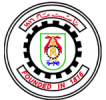MEP 531 Heat Transfer and Applications:
General equation of thermal conduction- Steady and unsteady thermal conduction- Fines and extended surfaces- Dimensionless groups- Relations of free and forced thermal convection-Fundamentals of thermal radiation- Heat transfer by radiation- Heat transfer through gases and flames – Heat exchangers- Heat transfer in liquids through boiling – Heat transfer in vapors through condensation.
MEP 532 Thermodynamics, Combustion and Combustion Engines:
First and second law of thermodynamics- Second law analysis of practical thermodynamic processes- Thermodynamic relations- Power steam and gas cycles- Types of fuel- Chemical and kinetics of combustion- Flames – Mixing and hea t transfer in furnaces- Flame measurements – Combustion in boilers, combustion ch ambers of gas turbines.
MEP 533 Fluid dynamics and Hydro Power Stations:
Basic governing equations for fluid motion- Pumps: design, selection, performance and tests-Hydraulic turbines: design, selection, performance and testing- Parallel and series pipelines.
MEP 534 Measurement and Control Devices:
Introduction- Transducers and sensors for various types of measurements- Error analysis-Important statistical parameters- Analysis of methods and devices used for measuring: temperature, pressure, velocity, flow-rate, and heat transfer rate- Analysis of two and multi-components gases – Coefficient of heat transfer – S pecific heat- Viscosity- Control devices.
MEP 535 Computer Applications:
Solution of nonlinear equations- Methods of the instantaneous solution of set of equations-Curve fitting – Differential equations and Applicat ions – Numerical solution methods for
differential equations- Applications in energy sciences – Approximation methods- Numerical integration and differentiation.
MEP 536 Thermal Power Stations and Its Economics:
Introduction- Energy sources and types – Electric p ower generation- Types of power stations-Steam power plants- Cogeneration- Gas turbine power plants- Combined cycle power plants – Geothermal power plants- Solar energy plants – Ocea ns energy- Total, fixed, and variable costs- Load curves- Method of economic selection-Capacity probability analysis- Energy cost rates- Linear programming- Project planning by probability method- Evaluation &assessment and review– Method of critical path.
MEP 537 Steam and Gas Turbines:
Types of steam turbines – Impulse turbine – Combine d velocity impulse turbine- Combined pressure impulse turbine- Inductive turbine- Velocity triangle- Work and blade efficiency-Stage efficiency and turbine efficiency- Reheat factor – Nozzles and diffusers- Losses in steam turbines- Control of steam turbines- Gas turbines and its performance- Compressors.
MEP 538 Nuclear Engineering:
Introduction- Principles of nuclear physics and reactors physics- Nuclear fission or fusion-Nuclear radiations- Calculations of reactor-core- Protection from nuclear radiations- Neutron cycles and reactor control- Nuclear power stations- Reactor safety – Selection and Testing of the locations of nuclear power stations.
MEP 539 Steam Boilers:
Introduction- Boilers development – Boilers types- Comparison between Water-tubes Boilers and Hot-gases or Fire-tubes Boilers – Dynamic perfo rmance of Water-tubes Boilers and Hot-gases or Fire-tubes Boilers – Boilers control- Trea tment of boiler’s waters – Cleaning and maintenance of boilers – Simulation and modeling of dynamic performance of steam boilers.
MEP 547 Special course:
Special Topics in Power Plants and Steam Engineering
MEP 548 Special course:
Special Topics in Power Plants and Steam Engineering.
MEP 557 Special course:
Special Topics in Power Plants and Steam Engineering.
MEP 558 Special course:
Special Topics in Power Plants and Steam Engineering.
MEP 599 Design Project (compulsory course):
Special course according to each specialization. It extends over the two basic terms without final written examinations.
